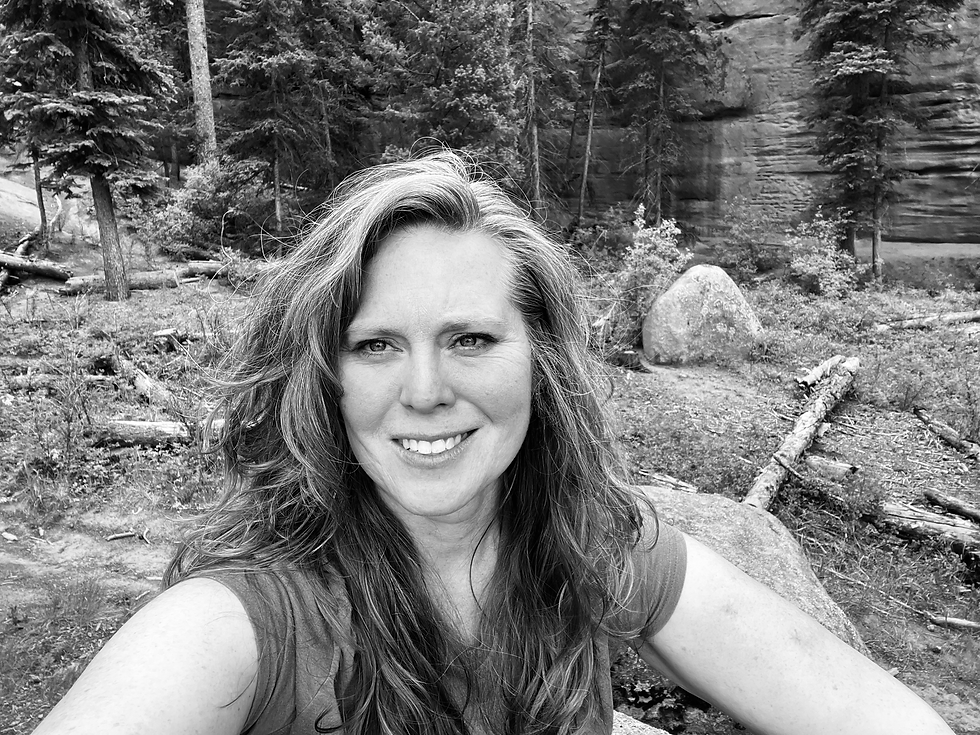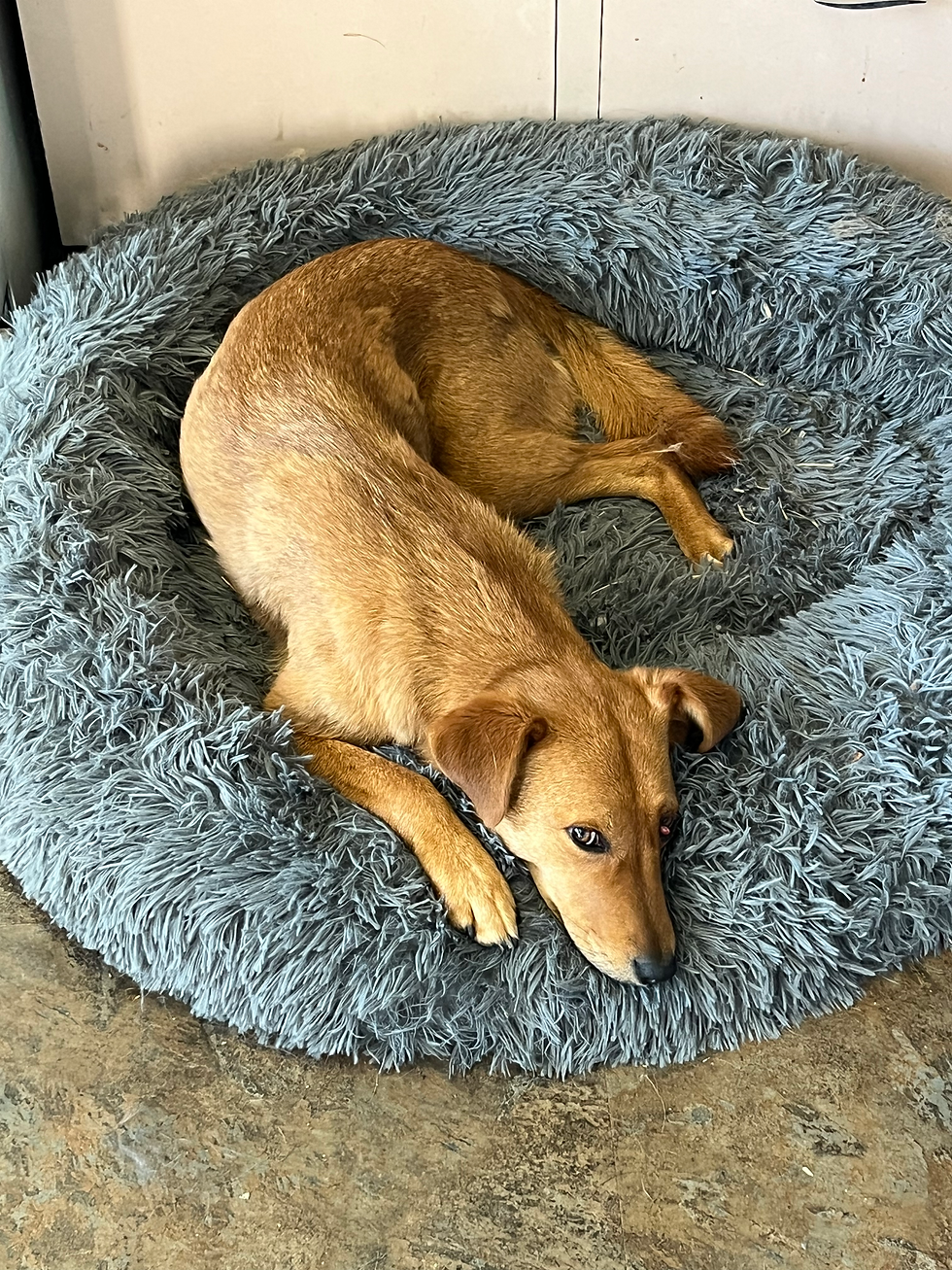More Than a Modality: What I Am (And What I’m Not)
- mrglhic
- May 23
- 4 min read

When titles fail but the work is real.
There was a time I wanted to call myself a bodyworker. And another time I wished I could just say I was a craniosacral therapist. There was a chapter where “developmental therapist” felt close enough. I’ve long held the title of speech-language pathologist. I’ve earned my LMT. I’ve worked with feeding, with regulation, with movement, with trauma, with relationship.And yet—none of these titles tell the truth of what I do.
More Than the Labels I Was Trained In
I use my speech therapy license to navigate systems, to make my work accessible where it needs to be. But that’s no longer the name I live inside.
I use the principles of biodynamic craniosacral therapy as a compass for presence and attunement—but I don’t offer traditional craniosacral sessions.
I work deeply with the body, but I’m not a bodyworker in the way most people expect. I don’t push, manipulate, or direct—I listen, attune, and follow.
I Even Have My LMT… But That’s Not the Work I Do
For a while, I thought massage therapy would be the bridge. I earned the credential, completed the training. I thought: Maybe this is the structure that will let me do the work I’m called to do.
But once I got there, I realized—I don’t want to manipulate muscles. I don’t want to force tissue to release. My work isn’t about tension relief. It’s about listening so deeply to the system that it remembers how to reorganize itself.
Why It Feels Like Therapy—But Isn’t
A lot of what I do looks like emotional work. Because it is.
I work with regulation. With rupture and repair. With nervous system cues that scream “danger” even in safety. With early attachment experiences that live in posture, voice, breath, and stillness.
I understand trauma not just from books—but from my own life. I know how to listen to bodies that stopped speaking long ago. I know what it’s like to rebuild safety from scratch.
That’s why people sometimes say, “You’re like our therapist.” But I’m not a psychotherapist. What I’m doing is nervous system work, developmental work, relationship work. It’s real, it’s reparative—but it’s not therapy in the clinical sense.
Because I Work In Relationship, People Think I’m a Therapist
I work in the space between: Parent and child. Spouse and spouse. Self and self.
And when a parent learns to see their child’s behaviors through the lens of attachment and regulation, something shifts. The story of the household shifts. The marriage shifts. The self-perception shifts.
But I’m not offering couples counseling or talk therapy. I’m helping systems make sense of themselves again.
Not an OT. Not a PT. Still, People Get Confused.
People assume I’m an occupational therapist because I understand sensory processing. Because I help organize systems, not just behaviors.
They assume I’m a physical therapist because I work with movement and core stability—because I understand how postural support must emerge before expressive language ever will.
And they forget I’m a speech therapist, because what I’m doing doesn’t sound like speech therapy. But that’s okay. I’m not that, either. Not anymore.
I work at the intersection. Where breath meets function. Where movement meets meaning. Where safety meets sound.
I’m Not a Lymphatic Drainage Specialist, Either
I talk about fluids. I care deeply about flow. But I don’t do manual lymph drainage. I don’t “shove” fluids around. That’s not how I work.
I create conditions where the body begins to release its bracing. Where reflexes integrate. Where fascia softens. And when that happens—fluidity returns on its own.
The body knows what to do. I don’t force it. I support it.
I’m Certainly Not a Somatic Therapist
I speak the language of the body. I track the breath. I know what freeze looks like, and what it takes to come out of it.
But I’m not trained in SE or somatic psychotherapy. What I know, I know from living through trauma in my own system—and from supporting others as they come home to theirs.
So yes, the work is somatic. But no, I am not a somatic therapist. I am someone who listens to the body in a world that often won’t.
I’m Not a Feeding Therapist Anymore, Either
Feeding is often what brings people to my door. But I no longer call myself a feeding therapist. Because feeding is not just oral. It’s not just motor. It’s not just sensory.
It’s relational. It’s structural. It’s survival.
To treat feeding as a standalone issue is to miss the entire system that created the challenge. And that’s not something I’m willing to do anymore.
So What Am I, Then?
I’m not a title. I’m not a credential. I’m not a discipline.
I’m someone who works in the in-between. In the places where the body remembers. Where the story lives under the skin. Where regulation isn’t a goal—it’s the soil from which everything else grows.
If you’ve tried the specialists, the programs, the plans—If nothing quite made sense, or worked, or held—If you want someone who sees the whole system, and not just the symptom—
This is the work.


